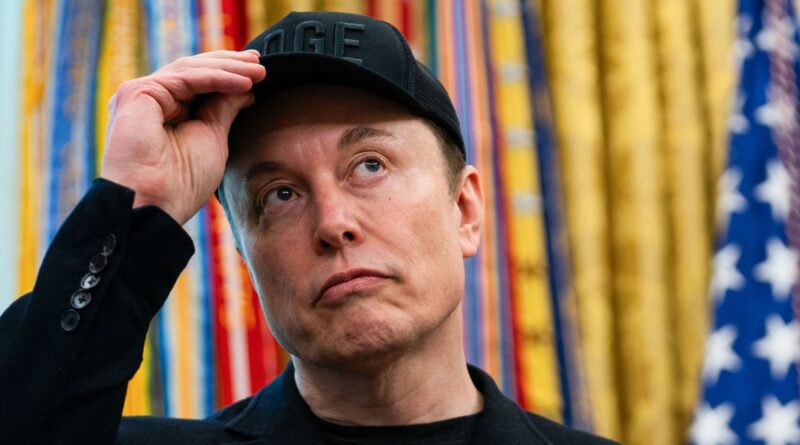Elon Musk’s New Challenge: The ‘America Party’
Elon Musk, the innovator known for pioneering reusable rocket technology and shaping the electric vehicle industry with Tesla, is no stranger to colossal challenges. His newest proposal entails a formidable endeavor in a different sphere—establishing a new political party. He’s been contemplating the creation of the ‘America Party’ as an alternative to the conventional duo of Democrats and Republicans, a structure he refers to as the ‘uniparty’. Yet, the complex regulations surrounding campaign finance might render this monumental political mission into a quagmire.
Indeed, these laws form imposing hurdles to fundraising and infrastructure setup that make the birth of a new party virtually unfeasible. They prohibit any attempts to furnish the sizable political venture capital essential to get such an initiative off the ground. Furthermore, noncompliance with these intricate laws could lead to severe consequences, including incarceration. Such stringent controls are a relatively recent phenomenon.
It wasn’t until the 70s that we first saw these regulatory measures enacted. When Ross Perot’s Reform Party gained a solid footing in the 90s, manifesting in securing 8.4 percent of the presidential votes in 1996 and the election of a governor in 1998, the existing law was revisited and hardened in 2002. This reshaping of regulation further complicated an already great feat — the establishment of a fresh political entity.
Critics posit compelling arguments that these party-stifling regulations are in violation of the constitution. Nonetheless, contesting them in court is an expensive undertaking and the legal process can stretch on for years. These laws curtail donations from a single individual to an emergent political party to $5,000 annually. Such limits practically negate the chances of raising funds competitive with the mature parties that boast extensive donor networks and established infrastructure — in forms like buildings, ballot access, and voter registration lists.
By contrast, the age-old titans of Democrats and Republicans are permitted to solicit up to $443,000 each year from a single benefactor. The story of Unity08 serves as a cogent example of how this regulatory framework inhibits new political organizations. Unity08 was a non-profit that planned to enable an online drill for presidential and vice-presidential nominations before the 2008 elections.
But their rhodu met an obstacle when the Federal Election Commission (FEC) limited their contribution capacity to $5,000 while binding them to a complex regulatory system. For Unity08, carving its spot in the political landscape required duking it out in federal courts just to assert its rights to exist, free from unwarranted regulation.
After enduring arduous and costly legal battles, the U.S. Court of Appeals ruled in 2010 that Unity08 was not to be governed as a political committee until it officially nominated a ‘clearly recognized’ candidate. By then, ‘Unity08’ had been forced to rename itself to ‘Unity2012’. During this judicial struggle, the group bore false accusations of law violations primarily from the two prevalent parties, further complicating Unity08’s fundraising efforts.
In 2024, ‘No Labels’ group experienced similar predicaments when they attempted to launch. Coupled with the limiting caps on contributions, the process of morphing into a national political party is arduously intricate. It resembles a governmental licensing scheme for new political parties, which deeply contradicts the First Amendment’s directive that ‘Congress shall make no law’ that restricts speech.
Before receiving the FEC’s stamp of approval as a party, a new entity must prove its ‘significant national-level activities’. This includes having widespread ballot access extending to congressional elections, conducting ongoing voter registration efforts, publicizing party viewpoints nationally, and founding state committees. This presents a paradoxical situation: an organization cannot accumulate the funds required to operate as a national party without governmental approval, and it cannot receive such approval until it functions as a national party.
Assuming the ‘America Party’ could leap over these regulatory barricades, there lurks another issue. The ostensible six-member FEC currently has only three active members, which falls short of the minimal four votes needed to grant the required approvals. The remaining three positions remain unfilled, and the administrative procedure to send nominations for these blank spots to the Senate for approval has yet to be initiated.
The myriad hurdles that stand before Elon Musk underscore the inherent shortcoming of campaign finance law. This legislation turns an indispensable democratic right — political speech — into a privilege dependent on the government’s approval rather than acknowledging it as a critical First Amendment right fundamental to a robust democracy.
The liberty to form a new political party is a pivotal part of freedom and democracy. However, our current campaign finance laws render this crucial endeavor nearly impracticable, even for an individual equipped with exceptional financial and legal resources like Musk. When someone as affluent and legally backed as Elon Musk encounters difficulty in establishing a new political party, it begs the question — where does that leave the everyday citizen?
Our campaign finance regulations have codified one of the most regulated activities in the nation to be political expression. This paradigm simply does not honor the intent of the First Amendment’s text or safeguard democratic values.

